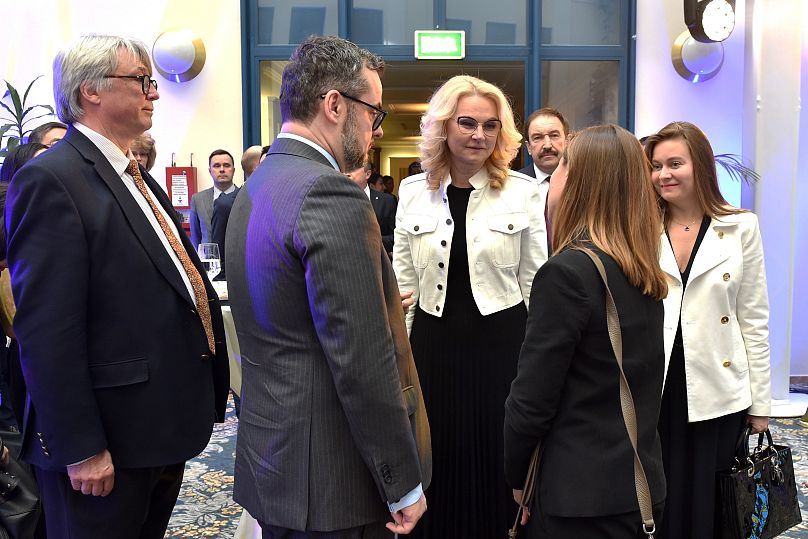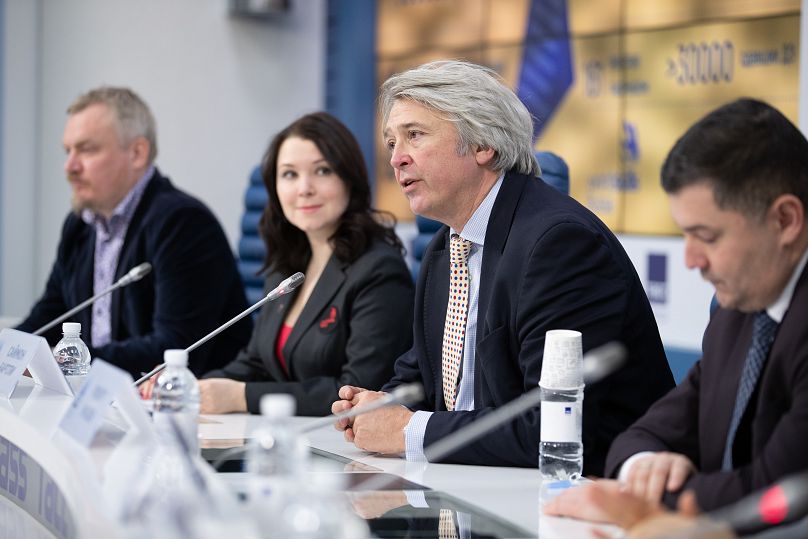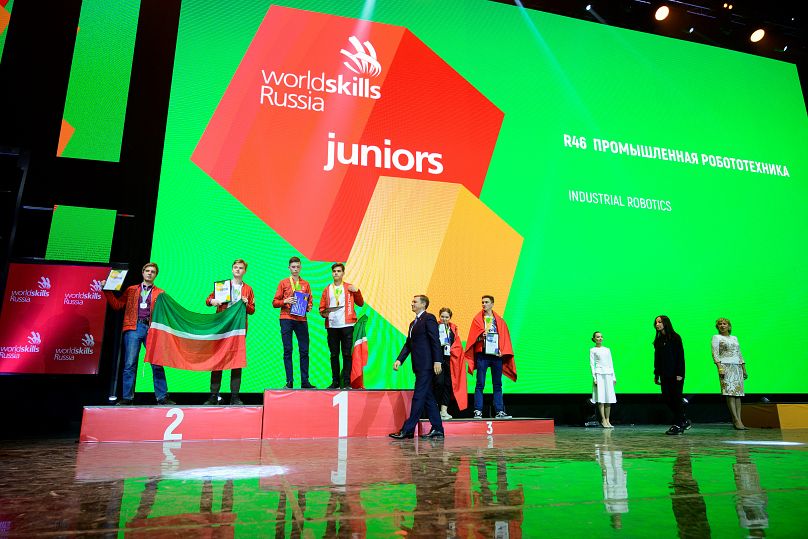Traditional methods of education are barely keeping up with the dynamism of globalised industries, but one thing is certain – human capital remains central to the world’s economies even with the increased use of robots and artificial intelligence.
With this in mind, WorldSkills – a not-for-profit organisation that brings together leaders from the fields of government, education, and industry in the promotion of vocational skills – holds a biennial competition showcasing the talents of young people from all around the world.
From 22 to 27 August, the 45th WorldSkills Competition will take place in the Russian city of Kazan. It is anticipated to be the largest yet, with some 250,000 visitors expected at events around the city to watch participants from 63 different countries and regions take part. These will compete in a variety of sectors, from engineering and construction to fashion and social services.
An unprecedented amount of preparation has gone into creating infrastructure that will allow more than 1,300 competitors to demonstrate their abilities in 56 different skills — from joinery to floristry; hairdressing to electronics; and automobile repair to baking.
The Competition will utilize 75,831 square metres of space – almost the size of Moscow's Red Square – at the Kazan Expo International Exhibition Centre, including permanent and temporary structures.
The WorldSkills Kazan 2019 shopping list includes 24,800 bricks; 1,944 drinking glasses; 450 paper chefs' hats; 24,838 individual fresh flowers; 22 drones; two helicopters; 35,000 metres of electrical cable, and more.
How WorldSkills began
WorldSkills was founded in the aftermath of World War II, and was created to give young people the skills to rebuild countries whose economies had been destroyed. Initially known as the International Vocational Training Organization, it held its first competition in Madrid, Spain, in 1950. In 2020, WorldSkills will celebrate 70 years of organising skills competitions for young people around the world.
Decades later, and in vastly different circumstances, the objectives of the organization are more relevant than ever.
“Our world is changing rapidly: new technologies are emerging with a faster pace of life,” said Tatyana Golikova, deputy prime minister of the Russian Federation. “The new reality demands constant transformation, encouraging everyone, regardless of age, to develop their competencies and master technologies. We have to be a few steps ahead of the challenges that we face in the labour market.”
The Russian Federation to host in 2019
In a vote held at the WorldSkills General Assembly in São Paulo, Brazil, in 2015, it was decided that Russia would host the 2019 competition. It’s the first time the country has done so.
“I am glad that this year it will be the Russian Federation that is going to host the WorldSkills Competition,” said Simon Bartley, the president of the organisation. “Russia is one of the most active members of WorldSkills.”
Not only is Russia fully engaged in the competition, with 63 participants from 25 different regions of the country taking part, but it has absorbed the lessons and experiences of previous years into its educational system. More than half (59%) of Russian school-leavers enter vocational education, up 19% from five years ago.
WorldSkills standards are integrated into the classrooms of technical colleges, and are reflected in the ‘Demonstration Exam’ that concludes the courses. These tests have been taken by 90,000 students already. The same benchmark applies to the advanced training of more than 5,300 teachers in various technical and vocational fields.
Partly as a result of regional competitions and the preparation for the world championship, 943 Russian colleges have received new equipment that enables students to meet global standards.
Rapid changes to the traditional structures of industry and economy have also made Russia an ideal candidate not only to host and participate in the competition, but to share its experiences with the wider world.
“The level of digital development in the country and the pace of its modernisation are focused on building the economy of the future,” said Simon Bartley. “WorldSkills and WorldSkills Russia have prepared an exciting conference programme. Overseas visitors will have a great opportunity to get acquainted with the unique developments of Russian specialists in the field of skills of the future.”
Taking the initiative
The Russian Federation has also taken the lead on various schemes to extend the scope of the programme. Speaking to Euronews, Ekaterina Loshkareva – the research and development director of WorldSkills Russia, and the official delegate for Russia to WorldSkills International and WorldSkills Europe – says she is perhaps most proud of WorldSkills Juniors, in which 14- to 16-year-olds take part, alongside the main squads of the national teams.
“Not only young adults, but also teenagers will be able to try the skills that are needed in different professions,” she says. “Of course, at this age it’s not just about performance, but also about the possibility to experiment with different things in order to make decisions about where to specialise later.”
With a view to developing training systems for young people, Russia has moved towards the International Development Exam. According to Ekaterina Loshkareva, Russia is “not only talking about the competition, but also assimilating all of this incredible data to explore global standards that can be used to evaluate millions of people, giving a transparent and fair assessment during their training.”
Another addition to the competition for 2019 is the ‘Future Skills’ section, which will focus on relevant fields of activity in the era of high-tech production and digital economy. These range from blockchain-based solutions to agricultural biotechnology.
Bringing leaders together
A crucial aspect of this year’s competition is the accompanying conference held under the theme ‘Skills for Change: Building Blocks for Impact’. It will explore the challenges and megatrends that societies face worldwide and will look at the potential solutions that skills offer.
More than 60 countries have signed up for the conference, and will be sending delegates that include industry leaders, politicians and the heads of educational and developmental organisations. A summit of ministers will be held alongside the conference, and will be attended by ministers and leaders from more than 45 countries.
“This will give leaders and relevant organisations a platform to discuss the most vital issues and approaches in an age of growing complexity, and the importance of international cooperation,” said Ekaterina Loshkareva.
Looking ahead
After strong results at recent international competitions – including scoring the highest total of points at EuroSkills Budapest 2018 – Russia is already preparing to host the competition itself in 2022, in the city of St Petersburg.
“We can use all of the lessons learned in Kazan to make EuroSkills St Petersburg 2022 more successful and unique. We will continue to develop initiatives such as WorldSkills Junior and Future Skills,” said Ekaterina Loshkareva.
She said that the conference and summit will also be recurring features.
“We believe that WorldSkills is not only about competition, but using these unique opportunities to bring about actual change in the agenda of skills development across the globe,” she added.




